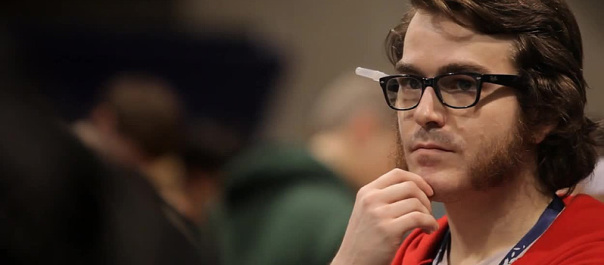The Phil Fish Narrative
Kevin Wong shares his thoughts on the drama surrounding Phil Fish's story and why we love underdog stories.

This post was originailly posted to my blog at kevinjameswong.com
I’ve been trying to keep out of the drama surrounding Phil Fish’s decision to leave the industry since the incident occurred a few weeks ago, mostly because I found it to be filled with emotionally divisive invective not conducive to respectful dialogue coming from both sides (and having encountered him twice at Indiecade and the Experimental Gameplay Workshop at GDC, man deserve his privacy). While a much ink has been spilled on the topic of how public industry figures should behave online and online harassment, I think there’s an interesting side to the story that has been overlooked over the last two weeks.
In the wake of Michael Phelps’s record breaking run at the 2008 Summer Olympics, public pools filled up faster than ever before, and people of all ages who had no prior interest in the sport took up athletic swimming. Much of this owes itself to the wealth of media coverage on Phelps’ life story and his history with the sport. The story that Phelps spun that Olympics had touched and inspired people, and incredible careers might have started because of it.

Phil Fish's story was my personal favorite from Indie Game: The Movie.
Celebrity is a crucial part of professional sports because people like narratives. The story of how a kid from an impoverished rural family became a soccer legend through practice and hard work speaks powerfully to our collective societal subconscious, and stories like Phelps’ tell us that anyone can realize their dreams should they live purposefully. That same underdog narrative can be observed everywhere: think of Steve Jobs’ story, or Aerosmith’s, heck, even the Biblical story of David and Goliath. The narrative of an individual’s overcoming of great obstacles to achieve greatness is incredibly appealing, and movies like 42 and even The Social Network told roughly that same story about the trials and tribulations that their protagonists go through to realize their destiny. In a way, these real-life “career stories” resemble the “Hero’s Journey” narrative espoused in films like Star Wars and The Lord of the Rings.
This is why Phil Fish’s departure from the industry is absolutely tragic. Phil Fish lived out and documented the kind of underdog struggle that’s core to sports narratives. Corporate figureheads like Gabe Newell and Reggie Fils-Aime tell few of their stories to the world and nonetheless receive a monumental level of adoration. These executives are not here to tell an inspiring story of success and struggle, but rather relay information about upcoming releases to potential customers. This narrative is entirely a consumeristic one, nobody is going to be inspired to make games because of announcements about the release dates of Half-Life 3 or Super Smash Bros. Phil Fish shared his vocal opinions and uphill battle in Indie Game: The Movie and on Twitter, and people were brought into his story and supported him as he inched towards Fez’s release.

Fez was great because its joyously cryptic design imbued it with a childlike sense of wonder.
The average industry lifespan for a game developer is around five years, and Phil lasted far beyond that short period of time under duress greater than what most developers face. While I’m sure that moving stories about great careers are scattered everywhere in this industry, Phil’s was more closely documented and engaging than anything you would find in Harold Goldberg’s All Your Base Are Belong to Us. The story of him overcoming a monumental series of obstacles both personal and legal to release the incredible Fez is the kind of narrative that inspires people to go out and chase their dreams of making games. If the underdog narrative of one of the industry’s most inspirational visionaries concludes with him quitting the industry because of harassment, what kind of message does that send to aspiring developers?
Read more about:
BlogsAbout the Author(s)
You May Also Like









